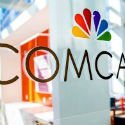Comcast warns COVID-19 crisis could have material impact
Cites closure of theme parks, delays of movie releases, suspension of content production, postponement of Olympic games and effects on the TV ad market and other parts of its cable business.

Though the ultimate effects of COVID-19 will vary by business line and government measures, Comcast disclosed that the effects of the virus "could have a material adverse impact" on results and operations "over the near to medium term."
In an 8-K document filed today, Comcast, which owns NBCUniversal, noted that measures to prevent the spread of COVID-19 are impacting its businesses almost across the board. Specifically, those measures have forced Comcast to close its theme parks, to delay the distribution of films in the US and internationally, and to suspend entertainment content production.
For Comcast, the impact is also being felt by the cancellation or postponement of sports events. Of serious note to Comcast and NBCU is the announcement today that the 2020 Summer Olympics in Tokyo have been postponed – and not canceled outright – for up to a year as the number of coronavirus cases worldwide continue to accelerate.
Speaking earlier this month at a Morgan Stanley investor conference, Comcast Chairman and CEO Brian Roberts said NBCU, which holds US TV rights to the games, has insurance to help mitigate losses in the face of a postponement of the summer games. Last month, NBC said it had already blown past $1.25 billion in national advertising for the Tokyo Games, a record that had already exceeded totals for the 2016 games in Rio.
"Given the unprecedented obligation we all face to contain COVID-19 globally, we fully understand the decision made by the IOC (International Olympic Committee), Japanese government, and the health organizations they are working with to postpone the Tokyo Olympics and Paralympics until 2021," an NBC Sports spokesperson said in a statement. "We have no doubt that the IOC and Tokyo Organizing Committee will put on an exceptional Games next year, and that the Olympic flame will once again unite the world and provide a light at the end of this tunnel."
Cable business also feeling it
In the 8-K, Comcast also noted that its cable business would not be spared from the effects of COVID-19.
For example, the virus could "materially exacerbate" an already deteriorating ad market in the UK and Europe in 2019. Comcast acquired UK-based Sky in the fall of 2018.
And while Comcast's network is performing well as more people work and school from home, the overall cable business "will not be unaffected either as economic stress impacts our residential and business services customer base."
But it's too early to talk exact numbers. "We expect that the ultimate significance of the impact of COVID-19 on our businesses will vary but will generally depend on the extent of governmental measures affecting day to day life and the length of time that such measures remain in place to respond to COVID-19," Comcast said. "At this point, it is impossible to predict such extent and duration and the degree to which supply and demand for our products and services, including advertising, will be affected."
On Monday, Comcast said it is maintaining a "cross-functional COVID-19 Steering Committee to address business, customer and employee concerns spanning human resources, communications, legal, environmental health and safety, security services and IT."
Comcast is far from alone in this plight. Verizon, for example, disclosed last week that COVID-19 could have a material impact on its financial and operational results. In an 8-K filed last week, AT&T stressed that "the impacts of the pandemic could be material," but that it could not yet estimate the impact on its financial or operational results.
Related posts:
— Jeff Baumgartner, Senior Editor, Light Reading
About the Author(s)
You May Also Like




_International_Software_Products.jpeg?width=300&auto=webp&quality=80&disable=upscale)







